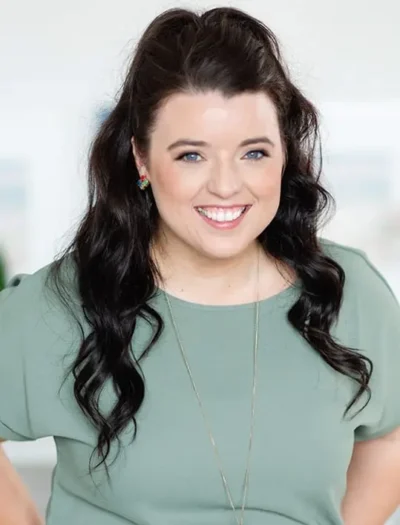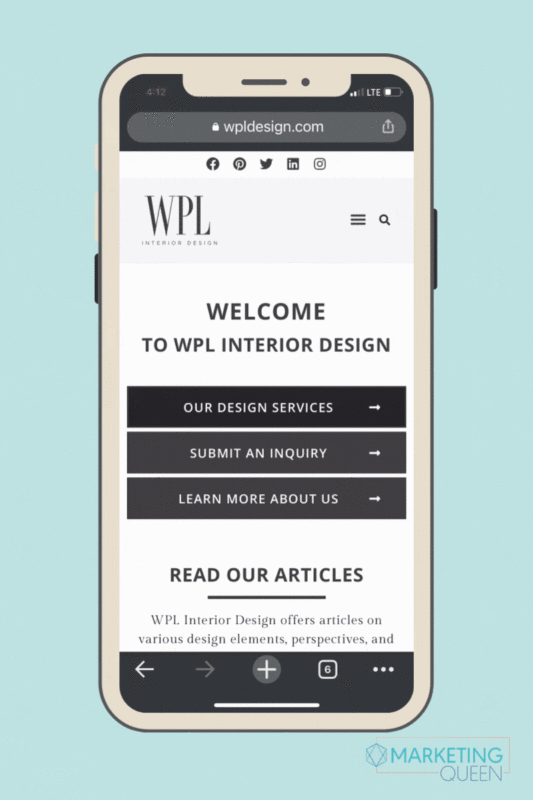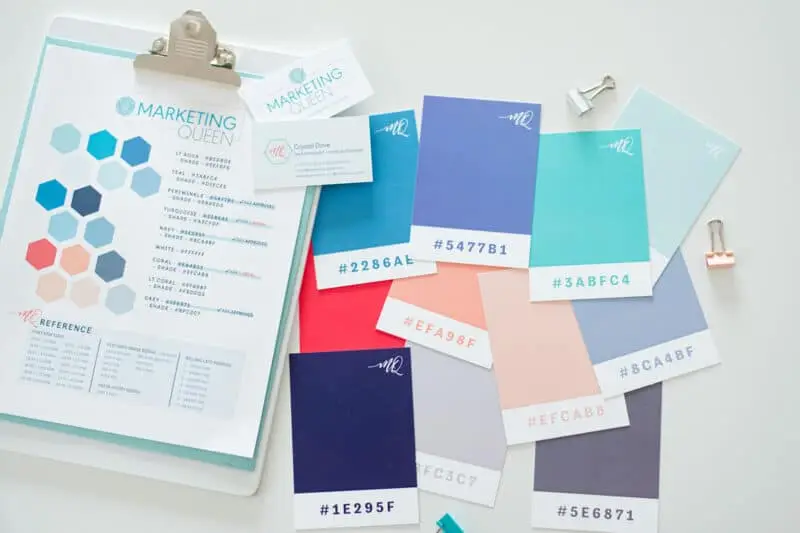When you think of branding, what comes to mind? Maybe things like logo design, coming up with a company slogan, or setting up your website. How about color schemes, branded images, fonts, and so on?
While those are all important elements of branding, developing your brand actually starts waaaay before you get to any of these steps. Before you start the design process, you have to know why you’re doing what you’re doing. You need to discover your brand purpose.
What is brand purpose?
“Brand purpose” is the fancy-schmancy way of talking about the “why” behind your brand. It really all comes down to describing the goals and values that motivate you and drive your business.
Brand purpose is more emotional than logistical. It is less about the tangible, factual aspects of the product or service you offer, but rather why you’ve chosen to offer them.
Your brand purpose (aka your “why”) is what inspires buy-in
On first thought, it might seem obvious that you would center your brand around the product or service you offer. Afterall, your product and/or service is what you’re selling, so it should take center stage, right?
Not quite. You’re actually going to want to build your brand around your “why” first and foremost. From there, the rest of your brand (including your products and/or services) can backup your “why.” (Remember, your “why” = brand purpose.)
You might be going, “Huh??” Let me explain…
People are moved less by the “what” and “how” of your business compared to your “why.”
Here’s an example:
Let’s say you’re a wedding photographer.
- What you offer: wedding photography packages
- How you offer it: you use high quality camera(s) and lighting equipment to take professional photos of couples on their wedding day.
- Why you offer it: Because there’s nothing like getting to capture the magic and emotion of a wedding day. You love the beauty, romance, and authenticity of wedding days, and getting to know the unique story and personality of each couple you work with.
Do you see how much more compelling your “why” is compared to your “what” and “how?”
In this example, what inspires people to work with you is your passion to take wedding photos that truly capture the emotion and vibe of their day!
In other words, your brand purpose is what people are really buying into. This is what creates customer loyalty and stirs an emotional response within your audience that makes your brand memorable.
To learn more about the importance of starting with your “why” versus your “how” and “what,” check out this awesome Ted Talk from Simon Sinek. It will leave you feeling totally mind-blown!

Source: Giphy
Why does brand purpose matter?
Along with building brand loyalty, knowing your brand purpose also has some other great benefits.
A great brand purpose helps to distinguish you from your competitors by giving a deeper meaning to your product or service that others in your industry may not have.
Take the wedding photographer example from above. Your passion for weddings and the personal connection you develop with your clients is probably way more enticing to your audience than if you focused just on technical photography skills with no emotion.
Also, your brand purpose is totally going to simplify your business decision making in the long run. It can act as a guiding principle for many of your brand decisions. Many business decisions become a whole lot easier when you filter them through the original purpose of your brand.
So, the more you solidify your brand purpose early on, the better foundation you’ll have to build the rest of your brand on. This means your brand will be more focused and strategic overall!
How to define your brand purpose
By now, you’re probably thinking, “Okay, okay, you’ve convinced me…now how do I actually define my brand purpose?”
Defining your brand purpose requires asking yourself questions, digging deep, and analyzing your business/product/service. It’s a mix of emotional, logistical, and analytical questions, so be prepared to dive into your internal world and think critically.
Step 1: how to find your “why”
Since your “why” is really the driving force behind your brand purpose, it makes sense to start there.
So, grab your favorite yummy beverage, get comfortable, and be ready to write! It’s time to reminisce on starting your business and remembering how it all began.
Here are a few questions that can help you find your “why:”
A. Why did you start your business?
What motivated you when you first started your business or decided to make your dream a reality? And, what still motivates you today?
B. Why are you unique in the marketplace?
Think about what really sets you and your business apart from your competitors. What’s your secret sauce, the ingredient you have that no one else does?
C. Why would your ideal client choose your product/services?
Dream about your brand from a customer’s perspective. If you sat down for coffee with your ideal client and asked them what stood out to them about your business, what would they say? What inspired them to work with you or to choose your product?
Step 2: Analyze the logistical aspects of your business
Now, it’s time to switch gears. You’ve taken the time to compile the ideas, feelings, and values that make up your “why,” so now it’s time to think about what those items can look like in action.
Here’s what to ask yourself as you analyze your business:
A. Who do you do it for?
Who is your target market? Think about the kind(s) of people who really want what your brand offers. Who do you want your brand to appeal to?
Tip: don’t get uber specific here; it’s okay to appeal to a broad range of people!
B. What do you do?
Keep this question super simple: what are your products/service?
C. Where do you offer your product/service?
What’s the delivery method of your product or service? Is it online, in-person, over the phone, etc.?
D. How do you offer your product/service?
How do your clients experience the delivery of your product/service? Do you offer a more reserved, efficiency-driven service? Or are you all about a more casual, interactive experience?
Maybe it’s a combination of the two or something completely different!
Reminder: There’s no right or wrong answer; it’s just important that you know what accurately fits your brand!
Put it all together
Once you’ve answered all of these questions, it’s time to look over your answers and combine them. Look for themes and connections throughout.
- What are the words, phrases, values, and emotions that come up often?
- Can you see how your “why” is related to what products/services you offer, who your target audience is, and the customer experience you aim to create?
- How can you summarize your answers to all of these questions?
And, ta-da! There’s your brand purpose!
Brand purpose statement examples
Let’s check out what brand purpose can look like in the real world, for real brands.
1. Nike

Credit: Nike
Notice how Nike’s brand purpose statement doesn’t mention anything about sports clothing or equipment. The inclusivity of their statement equating everyone with a body to an athlete is powerful!
2. Coca-Cola
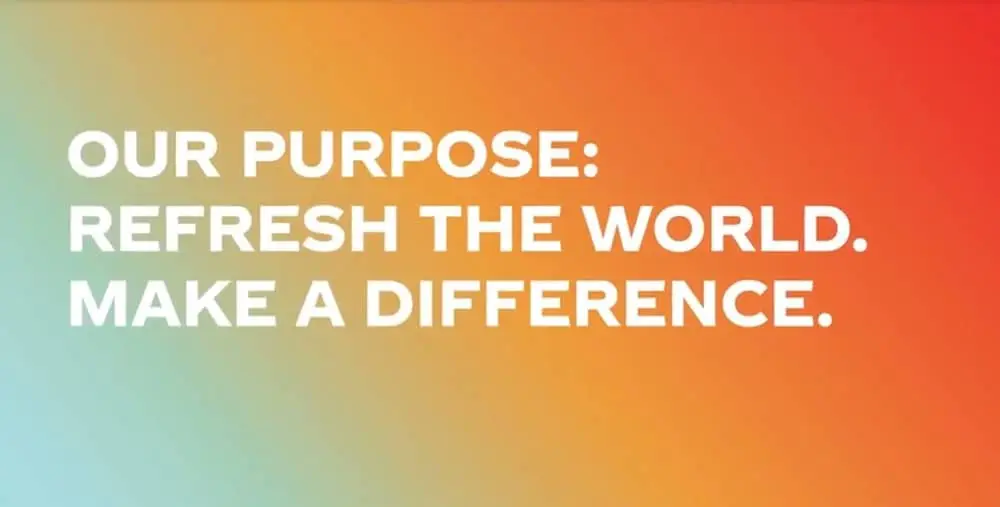
Credit: Coca Cola Company
Who knew soda could be so inspiring? Coca Cola’s brand purpose statement shows that they are about way more than sugary, carbonated beverages.
3. Engage Summits
For this brand purpose example, notice how this brand starts with their “why,” and then dives into their “how” and “what.” It definitely captures the reader’s attention!
First, the brand establishes why they started their business: personal engagement!
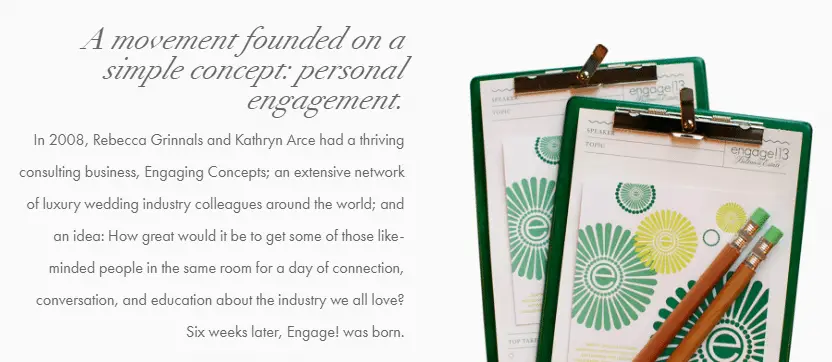
Credit: Engage Summits
Then, they explain how they will bring their core value of “personal engagement” to life via their services (conferences).
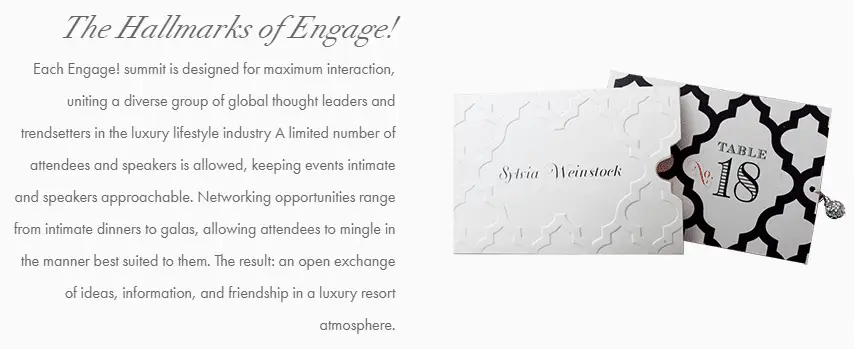
Credit: Engage Summits
Finally, they talk about what an Engage Conference actually is and what attending it is like.
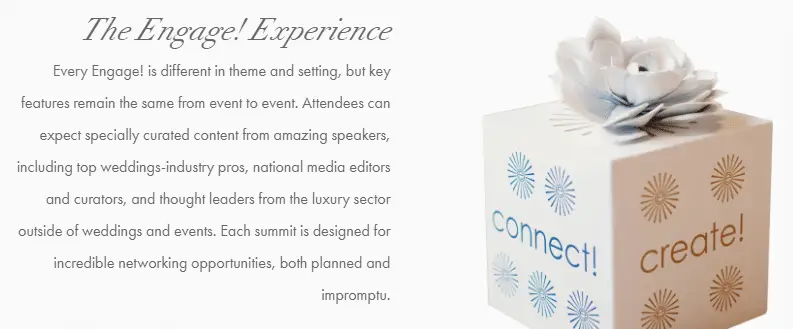
Credit: Engage Summits
Boom! This is a great brand purpose example showing how all of their information ties back to their original goal of bringing personalized engagement to people in the wedding industry.
The bottom line
What makes these brand purpose examples compelling is that they’re emotive, inspiring statements. They pull on deeper values and goals than the products and services themselves encompass.
At the end of the day, your brand purpose is about communicating the emotions you want to evoke in people and the deeper meaning to the products you offer.
Do you know your brand purpose?
Do you know your brand’s purpose? If not, now’s your time!
Ask yourself the questions in this post, and you will be well on your way to finding out not just what your brand offers and how you offer it, but more importantly, why! Once you know your “why,” you’ll be unstoppable!




